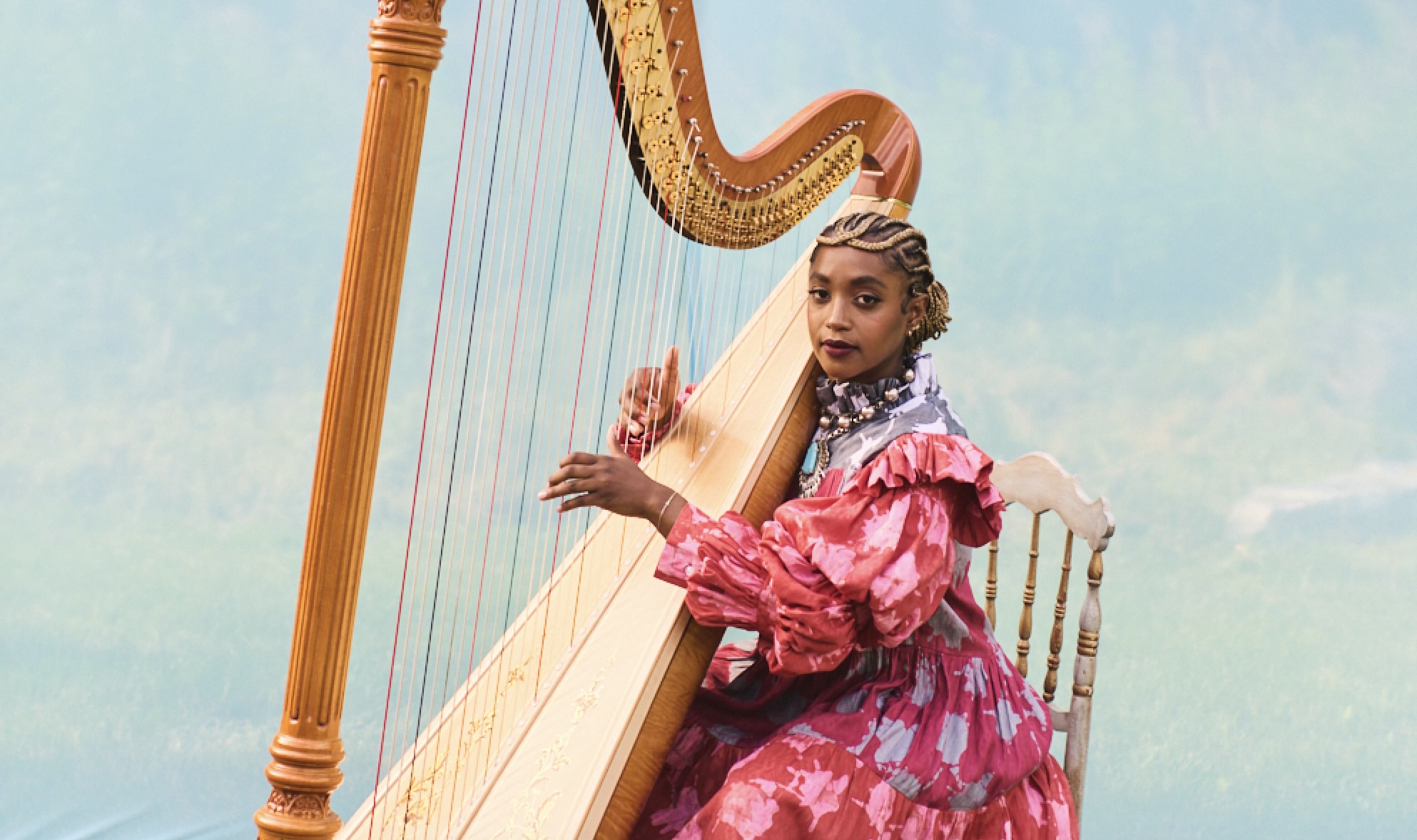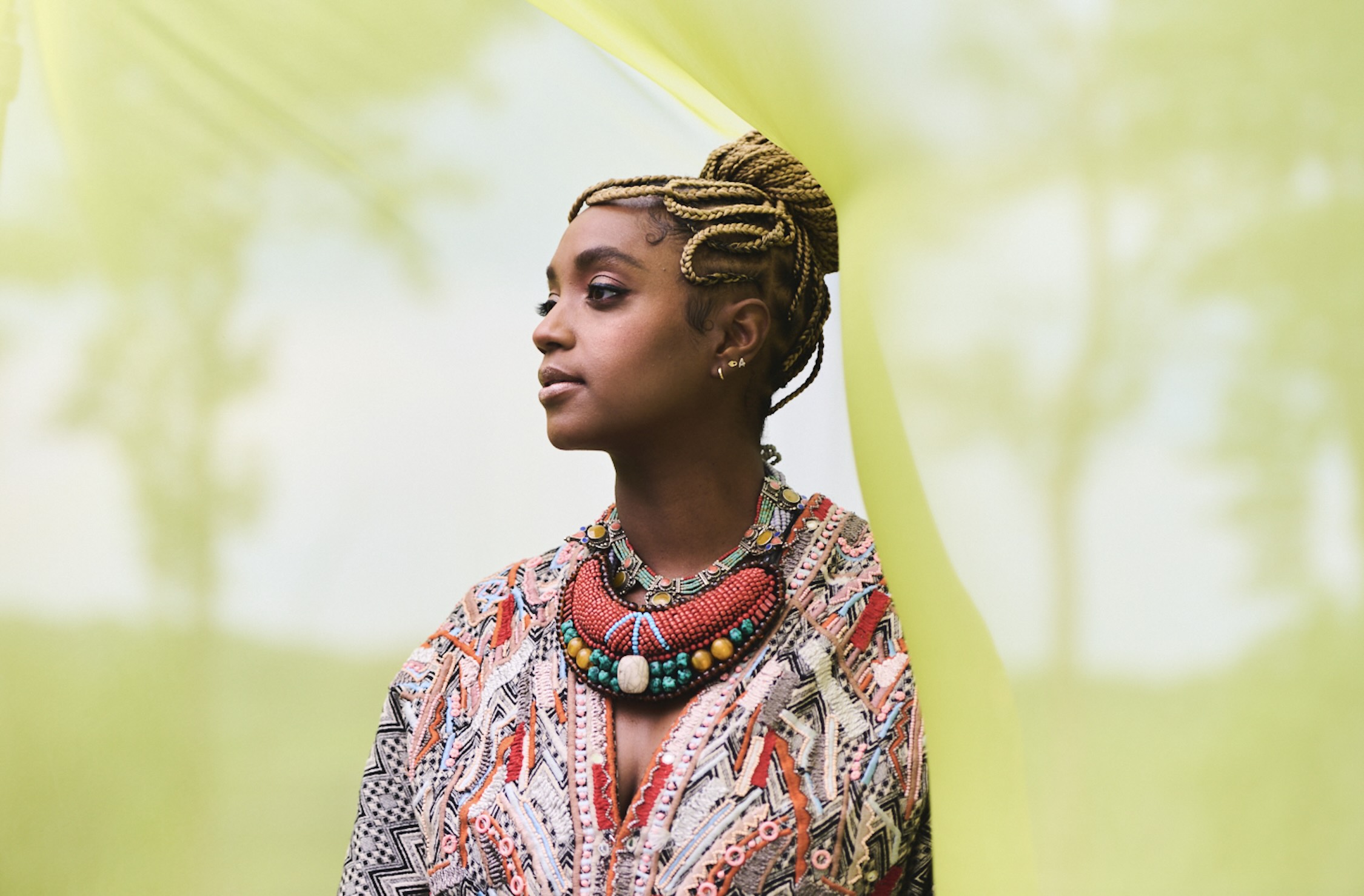People in the News
New Artist of the Month: Harpist Ashley Jackson
One of my favorite recordings of 2023 was Ennanga by harpist Ashley Jackson. An assured and original debut on the pioneering Bright Shiny Things label, it explored West African musical traditions and the importance of the African American spiritual. Performances were “tight as a drum and packed with enchantment and fantasy,” I wrote, admiring her ability to play with “enormous affection, immaculate technique, and a surefooted sense of dynamics.”
An innovative programmer and member of the Harlem Chamber Players, Jackson this month releases a follow up album, Take Me to the Water, the first fruits of her brand-new contract with Decca.

In addition to her career as a performer and recording artist, Jackson possesses a spirited commitment to diversity and inclusion. “What drives me is connecting people through music,” she says, chatting over Zoom from her office at New York’s Hunter College, where she is an assistant professor and director of undergraduate studies. “Music has always brought people together, so when you look for those connections musically—or extra-musically—the diversity will take care of itself.”
Born in New Jersey in 1986, Jackson is the only professional musician in her family, though her mother played organ in church and her father could play piano by ear. “I have two sisters and all three of us had lessons, but I was the only one who liked to practice,” she laughs. “Music was a part of being together as a family, in church, in the car on the radio, Christmas parties—yes, lots of music.”
"Limitless possibilities"
She started piano lessons at age six; her teacher, who had a niece who played harp, suggested to Jackson’s parents that their daughter might like to try something different. It was love at first sight. “The harp is beautiful to look at as well as to listen to, and because of its roots it has this spiritual connotation to it,” she says. “It has limitless possibilities to tap into.”
A Bachelor of Arts and Master of Music from Yale School of Music was followed by a doctorate at Juilliard where the studio is headed up by Nancy Allen, principal harp with the New York Philharmonic. Jackson’s innate curiosity, however, found her pondering a world outside the classical tradition. “Something I was always working to reconcile was the music I grew up listening to, which was not classical harp. It was gospel, it was jazz, it was pop music. So, I would look for ways in private to experiment,” she explains.
Forging a career as a professional harpist, under any circumstances, was never going to be easy. “Believe it or not, there’s no roadmap,” she says. “I worked full time and stayed in New York to see what would happen. I played all kinds of gigs: contemporary music, Broadway a little bit, orchestra of course. But what I told myself was that every season I would have something that was mine—usually it was self-funded—a concert I’d curated or an essay I wrote.”
An ongoing enthusiasm was the subject of her doctoral research, the 20th-century Black composer Margaret Bonds. “I could see little parts of myself in her,” she says. “She liked to have a good time, from what I could tell, and her relationship with Langston Hughes was fascinating. Now, as a mother myself, I can really resonate with her struggles to balance that with her calling as a composer.”
Her research into Bonds led to her first recording project, a collaboration with baritone, conductor, and friend Malcolm J. Merriweather. The Ballad of the Brown King for Avie Records featured Jackson alongside the Dessoff Choirs and Orchestra.
Her first solo album came about when she started probing the roots of the music she had grown up with. “The summer before, I was reading a lot about African American spirituals and slave narratives and thinking about Black spirituality,” she shares.

Ennanga earned Jackson praise all round and it wasn’t long before Decca came knocking. “There were a couple of pieces that didn’t make it onto Ennanga, like Deep River,” she explains. “I love water and I’d been reading about how water is worshipped and celebrated in different cultures, so, I pitched the idea.”
The result, Take Me to the Water, is an advance on Ennanga in terms of Jackson’s own arrangements. “There is a lot more collage work, taking ideas from improvisations and superimposing them on preexisting melodies,” she explains. “The Samuel Coleridge-Taylor spirituals were originally for piano, and I pretty much stayed faithful to all the notes and registers, but the Alice Coltrane is her arrangement, not mine.”
A novel use for socks
Her most eyebrow-raising innovation comes on the track Troubled Water for which she wove socks through the strings to affect the harp’s lower notes. “It’s a bombastic, romantic style piece for regular piano, so I had to do a lot more work to make it suitable for the harp,” she smiles. “The opening needs to be clear, but because the harp is so resonant, the lower you go the muddier it gets. Suddenly, it popped into my head how at Juilliard that Nancy had mentioned that some harpists will thread a scarf to dampen the sound so you can hear all the notes. I had a pair of socks in my bag and oddly, that’s how it happened.”
Surveying the landscape of the last eight years, Jackson welcomes the increase in opportunities for artists of color, both past and present. Whether that will last, however, is another question. “You know, fads, they come and go,” she says. “I don't know whether this sense of optimism will continue, I hope it does, but I am concerned for the sense of tension these past few months.”
“I’m not recontextualizing the album ahead of the release, I'm just thinking about how it might land, how it might hit people in a different way because of what's going on,” she concludes. “If anything, I hope that it provides comfort.”
Photos by Julia Comita





 FEATURED JOBS
FEATURED JOBS

 RENT A PHOTO
RENT A PHOTO


